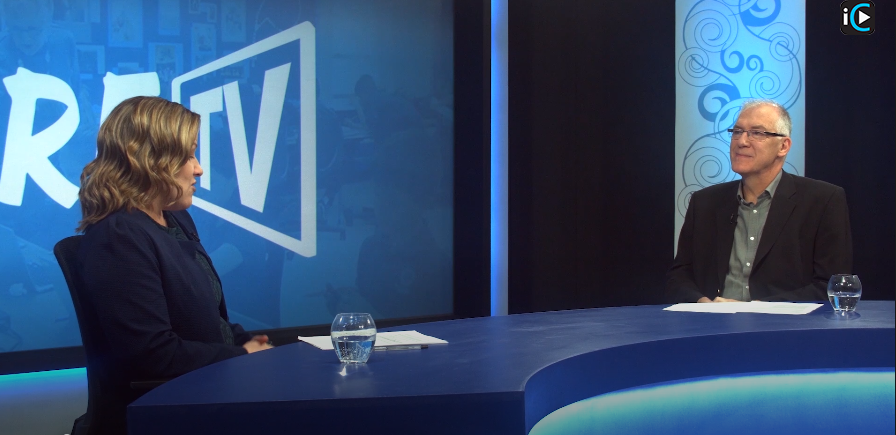

New Approach to Junior Cycle RE
Dr Gareth Byrne, Director of the Mater Dei Centre for Catholic Education (MDCCE) at DCU Institute of Education, was interviewed recently by Ms Kate Liffey on RE TV concerning the new approach to Junior Cycle Religious Education. RE TV is an initiative of the Council for Catechetics of the Irish Bishop’s Conference and iCatholic, creating resources to help teachers and all those who support young people in their religious education and faith development.
The interview with Dr. Byrne, entitled ‘What is Religious Education’, can be found at: https://www.icatholic.ie/religious-education-gareth-byrne/
Other resources in the series are available at iCatholic: https://www.icatholic.ie
In the interview, Dr Byrne points out that the new specification for Junior Cycle Religious Education allows for all students, from a variety of religious and non-religious backgrounds, to enquire, explore more deeply, reflect and consider how they might act differently as a result of their research and study. Their own encounter and engagement with religious, spiritual and moral issues is encouraged while at the same time they learn about the religions and worldviews of others. Dialogue about the big questions, about how religion is expressed in their own lives and in those of others, and questions about the moral life, are all central to this new approach.
In Religious Education, Dr Byrne continues, Catholic students are encouraged to engage with Jesus, his life, teaching, death and resurrection, with the Gospel, with the Church throughout the ages, with Catholic beliefs and rituals, as well as reflecting on their own responsibility in this context to live a moral life. Students with religious or non-religious worldviews will all start the conversation from their perspective and enter fully into the respectful conversation the teachers establishes in the modern RE classroom.
In a Catholic school, Dr Byrne confirms, as well as fully supporting the Religious Education of young people, the school provides important opportunities to build community together, to participate in prayerful, liturgical and reflective moments, and to be of service of those in need, especially the poor, and indeed to care for the earth, our common home. The principal, teachers, parents and students all contribute to a conversation that encourages students to engage with the religious, spiritual and moral elements of their holistic development.
